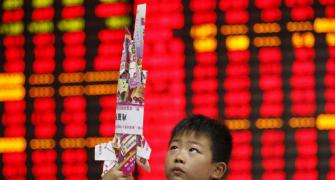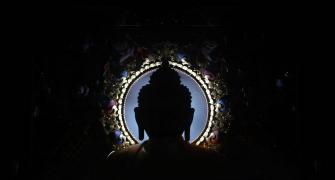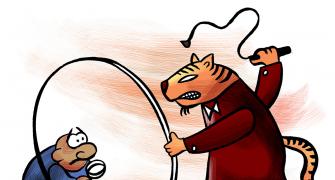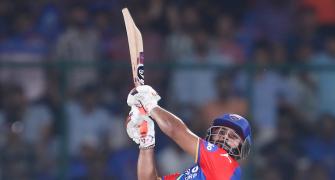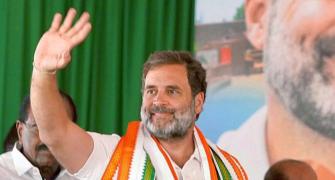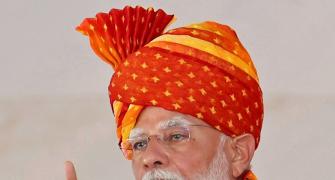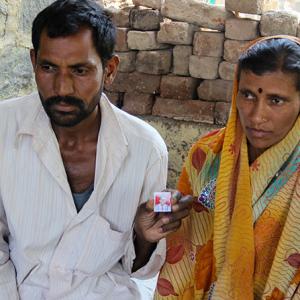'A lot of people,' says India's Ambassador to the US, 'are struggling how to define this relationship.' Aziz Haniffa/Rediff.com reports from Washington, DC.

In the wake of the transformational ties between India and the United States in the past decade, getting a precise fix on how to define this relationship has left pundits and policy wonks flummoxed, India’s Ambassador to the US Arun Kumar Singh said.
Singh, a key participant at the Atlantic Council’s forum on ‘Unlocking the Potential of US-India Trade, was asked why the current euphoria over the state of the India-US relationship was any different from the excitement of the past that were generated by false starts, and if considering the road blocks that still persist, if the partnership could still unravel.
Such doubts. Singh said, were unavoidable because "we’ve not had a practice in the past decade of working so closely together," and cited the example of how "India and the United States do more military exercises than any other country bilaterally."
"People," Singh said, "are asking questions about what kind of relationship is this," and noted, "President Obama has said it’s a defining partnership of the 21st century. Two of our prime ministers have said we are like natural allies, although we don’t say we are an ally, we are not looking for military alliances."
"So, a lot of people are struggling how to define this relationship," the ambassador added, mentioning how "the Council on Foreign Relations recently brought out a study which said it’s a joint venture, where you work together on common interests."
‘’I remember after (Defence) Secretary (Ash) Carter visited India, there was a newspaper comment saying it’s a warm handshake but not an embrace," Singh said, adding as much as ‘"he United States sees itself as an exceptional country, in India, we also see ourselves as an exceptional country and there is tremendous assertion in India that any partnership we build, there must be this strategic autonomy in decision-making."
"Given all this," Singh argued, "there is a recognition in both countries that there is a lot of convergence of our interests and therefore, how do we work together to maximize that convergence and utilise that convergence to our advantage."
"What is happening is that we now have a habit of working together, of discussing and managing our differences and disagreements far better than we did in the past, and all this will provide us a way to keep growing forward," the envoy explained.
Earlier, in countering some of the arguments, including those propounded by Senators John Cornyn and Mark Warner, the co-chairs of the Senate India Caucus, that New Delhi should ramp up economic reforms if the potential of US-India trade is to reach its potential and digs at India’s much maligned bureaucracy, Singh asserted, "One thing that has to be remembered is that the political economies of India and the United States are different."
"There cannot be a cookie-cutter approach," he said, adding that if "allowances are made in this regard, the tremendous opportunities that exist" could be availed of by investors.
At the outset, Singh, in establishing the context from India’s perspective, argued that "despite the global headwinds over the past two years, India has shown a reasonably good rate of growth. Last year we grew at about 7.5 percent and the year before at 7 percent."
The ambassador assured the audience that "most projections are that in the coming year, the rate of growth should be higher because the expectation is that this year on account of enhanced rural demand because of much better monsoons and other factors, there would be an addition to the rate of growth meeting what the IMF (International Monetary Fund) projected -- that India being the fastest-growing economy in the world."
US investment in India, which was about $8 billion in 2004, Singh pointed out, was now $28 billion. "Just in the last two years, again, despite the global headwinds, US equity investment in India has gone up from $7 billion to 12 billion."
"FDI (foreign direct investment) flows into India have gone up by more than 50 percent," Singh said, "and again, in the last five years, Indian investment in the United States by Indian companies has been $18 billion, creating 100,000 jobs directly and in more than 40 US states."


